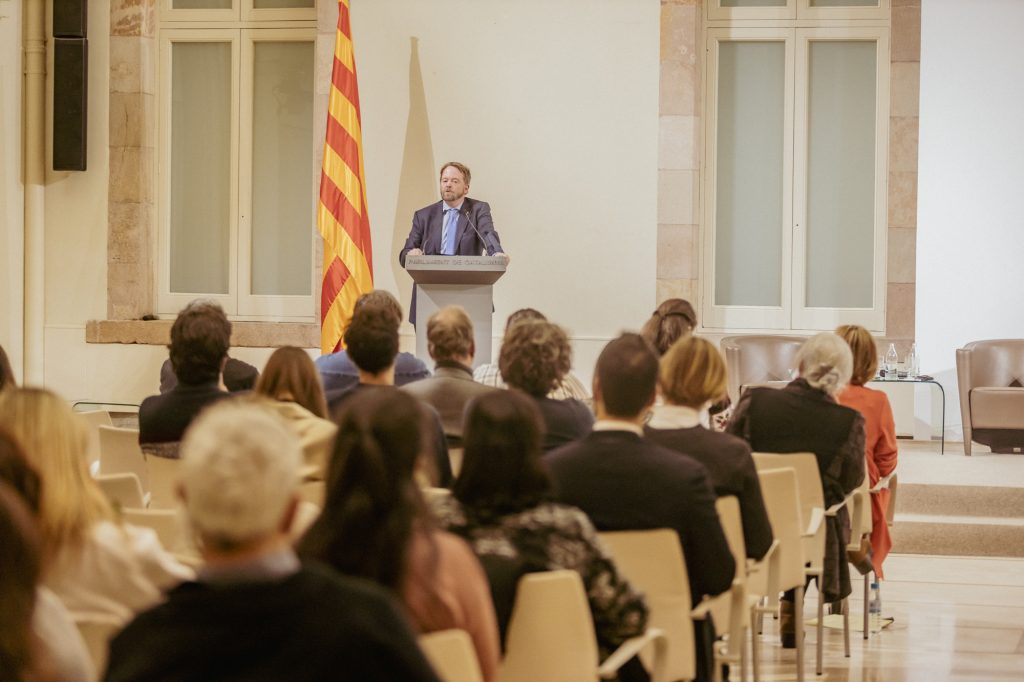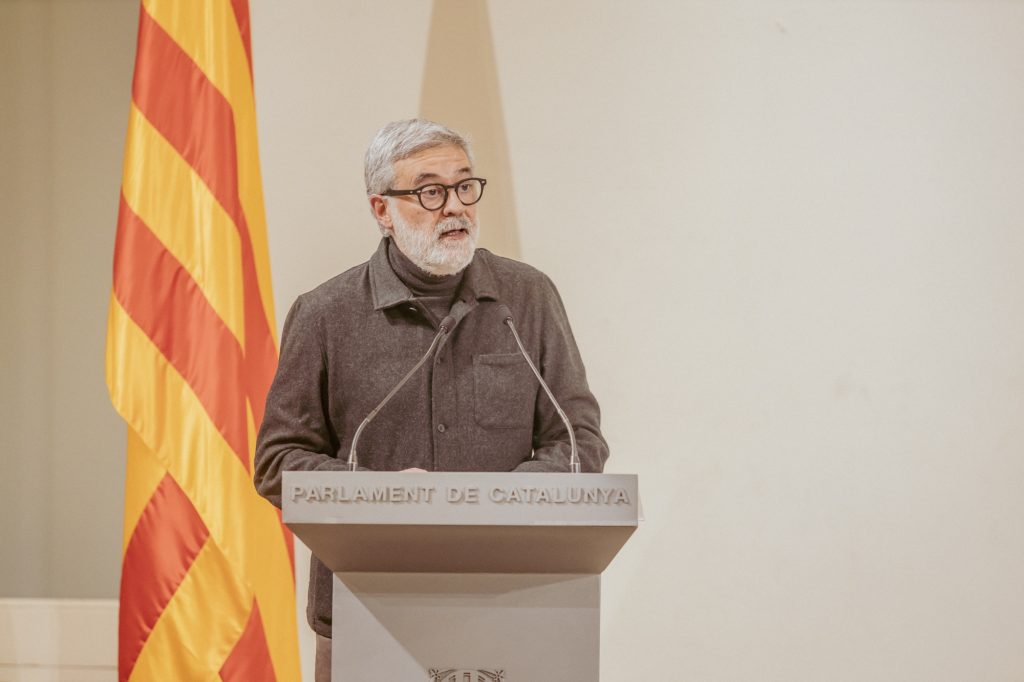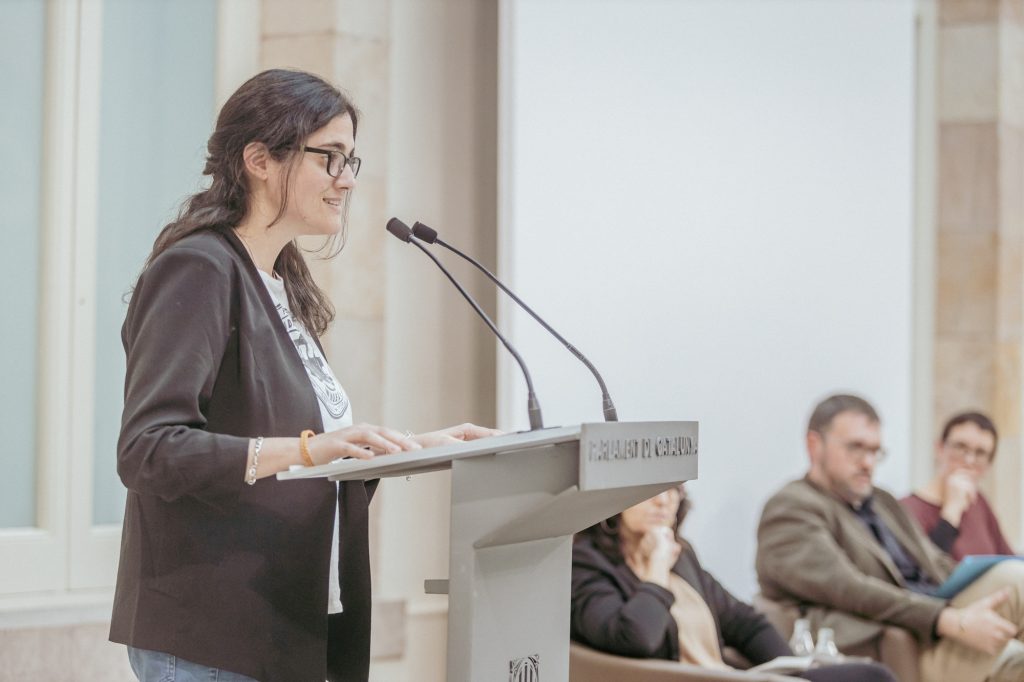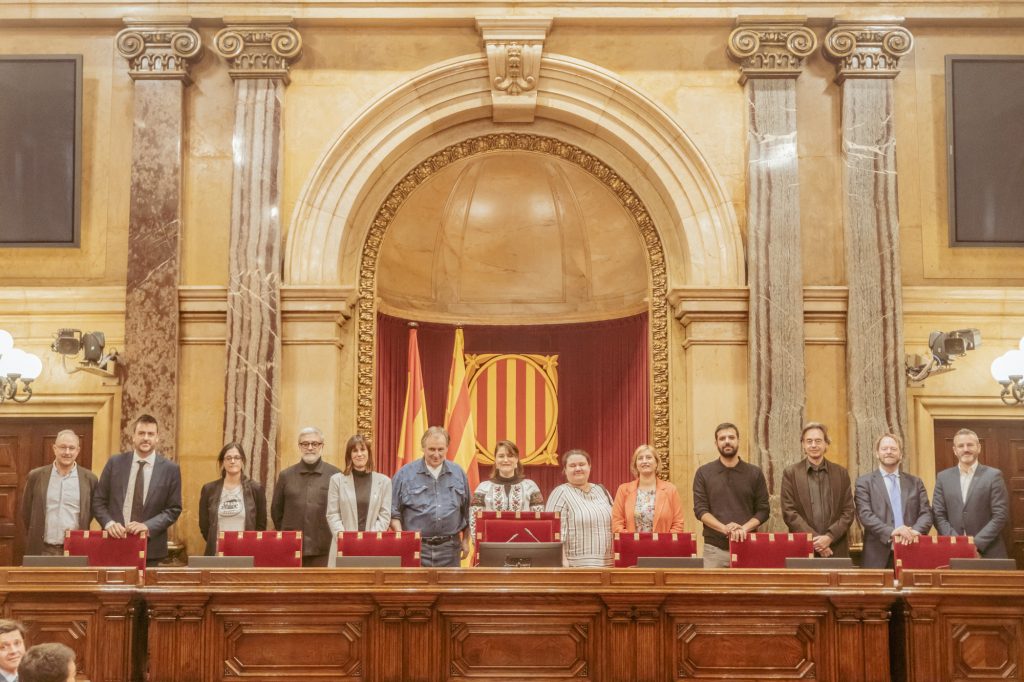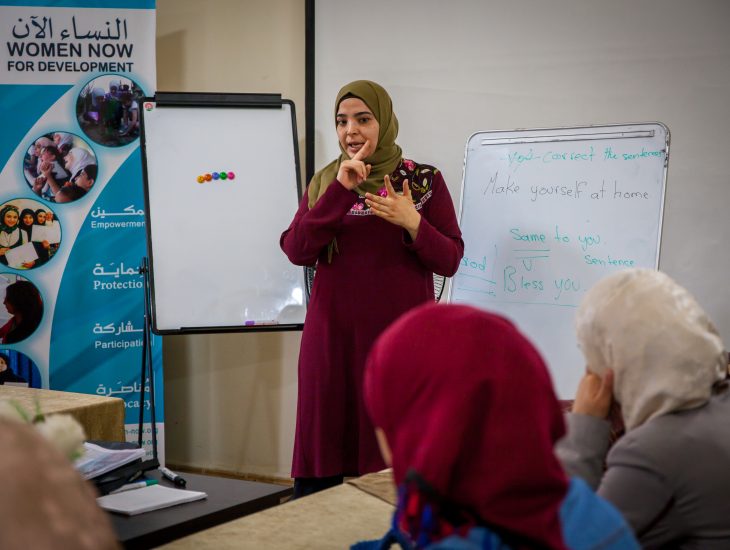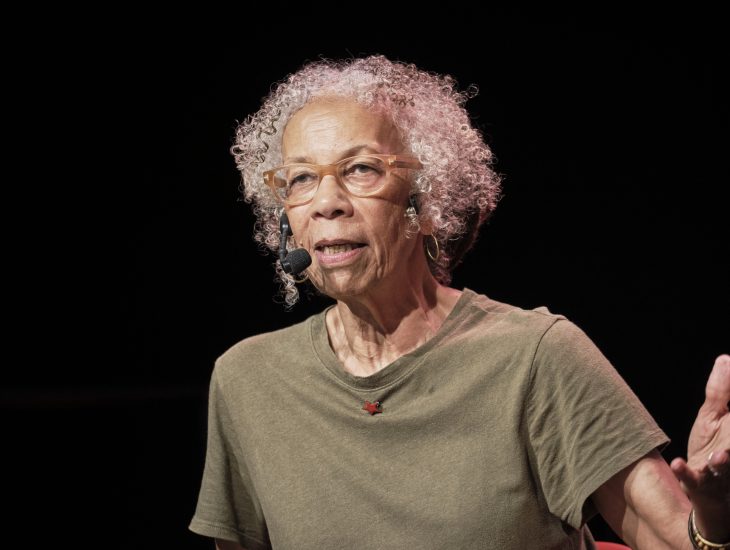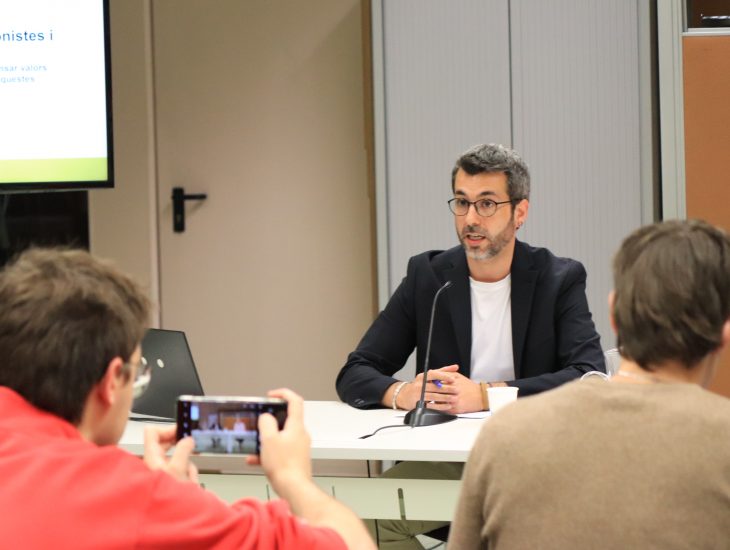On Monday, 30 January, the Parliament of Catalonia’s First Conference on Peace brought together the peace movement organizations of Catalonia and representatives of the organizations awarded the 2022 Nobel Peace Prize. The objective of this event, co-organized by ICIP and Lafede.cat, was to reflect on the role of civil society in the context of the war in Ukraine.
The conference, which was opened by the vice president of the Parliament, Alba Vergés, featured speeches by the president of Lafede.cat, Ares Perceval, and ICIP president Xavier Masllorens. Coinciding with the School Day of Nonviolence and Peace, Perceval highlighted the ever-more important task of working for peace and preventing school conflicts. For his part, the president of ICIP emphasized the importance of building peace in civil society, citing the organizations awarded the Nobel Prize as an example.
Contributions of Catalan peace organizations
Under the title “Peacebuilding alternatives for a paradigm shift: Contributions of Catalan organizations,” the first panel of the day brought together representatives of Catalan peace organizations: Albert Caramés of FundiPau; Ana Villellas of the School for a Culture of Peace; Tica Font, of the Centre Delàs; Luca Gervasoni, of Novact; and Pilar Font, of Peace Brigades International.
Their speeches highlighted the need to work to prevent conflicts and promote positive peace based on social justice. They recalled the strength of the peace movement, for example, in the demonstrations of precisely twenty years ago against the war in Iraq, and pointed out the need to network and build critical alternatives without losing hope.
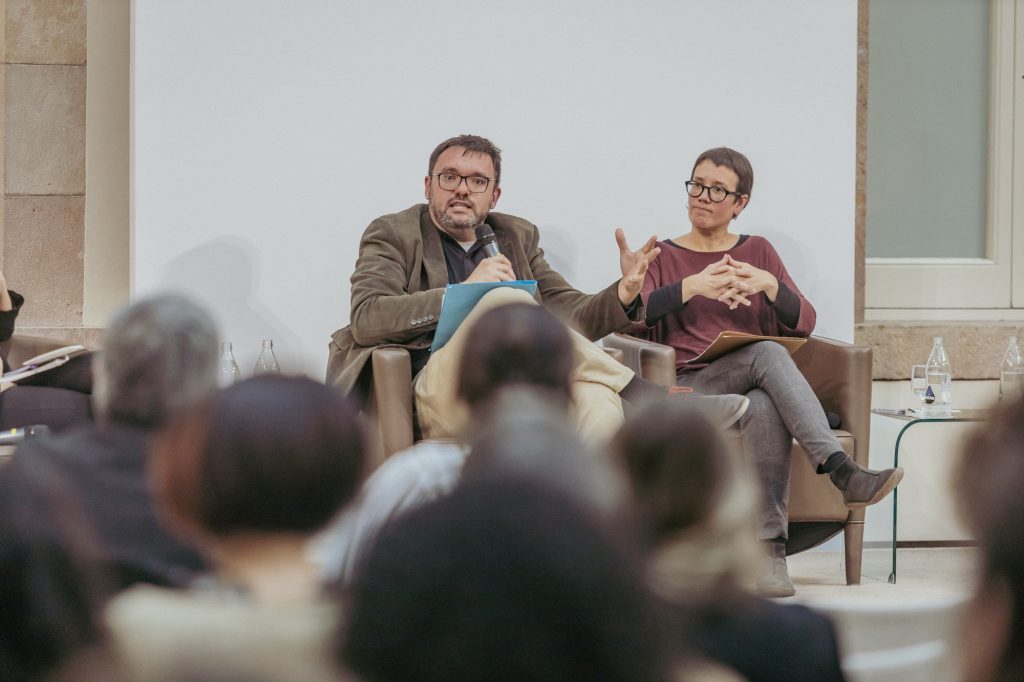
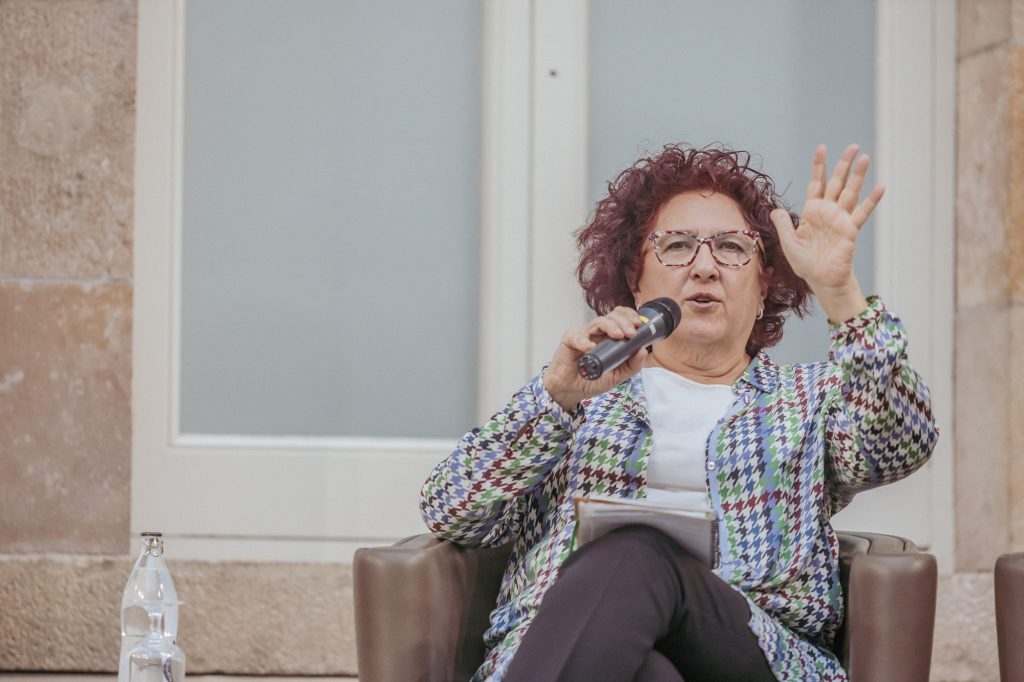
Defence of human rights in Ukraine, Russia and Belarus
The organizations awarded the Nobel Peace Prize 2022 participated in a roundtable entitled “Civil society facing war and authoritarian regimes: Ukraine, Russia and Belarus,” where they shared their experiences. Oleksandra Romantsova, executive director of the Center for Civil Liberties (Ukraine), spoke about the efforts of Ukrainian civil society to advance towards democracy and demanded justice to clarify the war crimes committed in Ukraine. She added that her organization is working to bring “Putin and all those responsible for this war before the international justice system to have them punished.”
Natallia Satsunkevich, a member of the Interim Board of the Viasna Human Rights Center (Belarus), stated that the leader of her organization and Nobel Peace Prize laureate is in prison and that she had to leave the country two years ago and cannot return. She spoke about the lack of freedom in Belarus and asked Catalans to express their solidarity with the 1,500 political prisoners in her country.
For his part, Aleksander Cherkasov, former chair of the Board of the Memorial Human Rights Center (Russia), described the current war in Ukraine as one more crime on the list of war crimes committed by Putin’s regime, along with Chechnya and Syria. He also stated that “Russia has declared war on non-governmental organizations” such as his own, so he had to flee the country eight months ago.
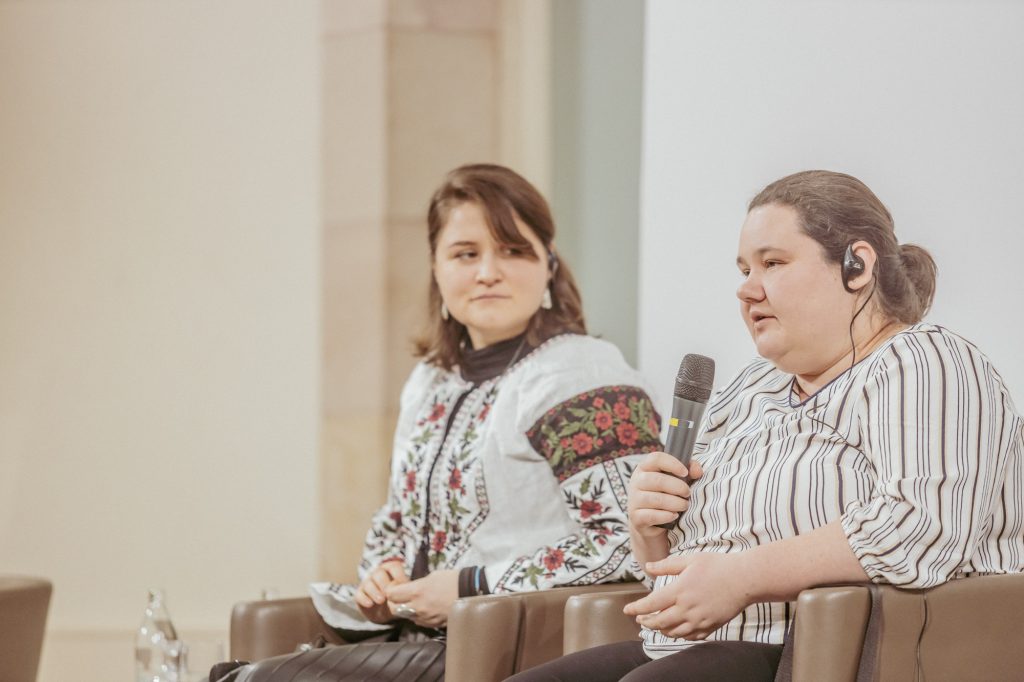
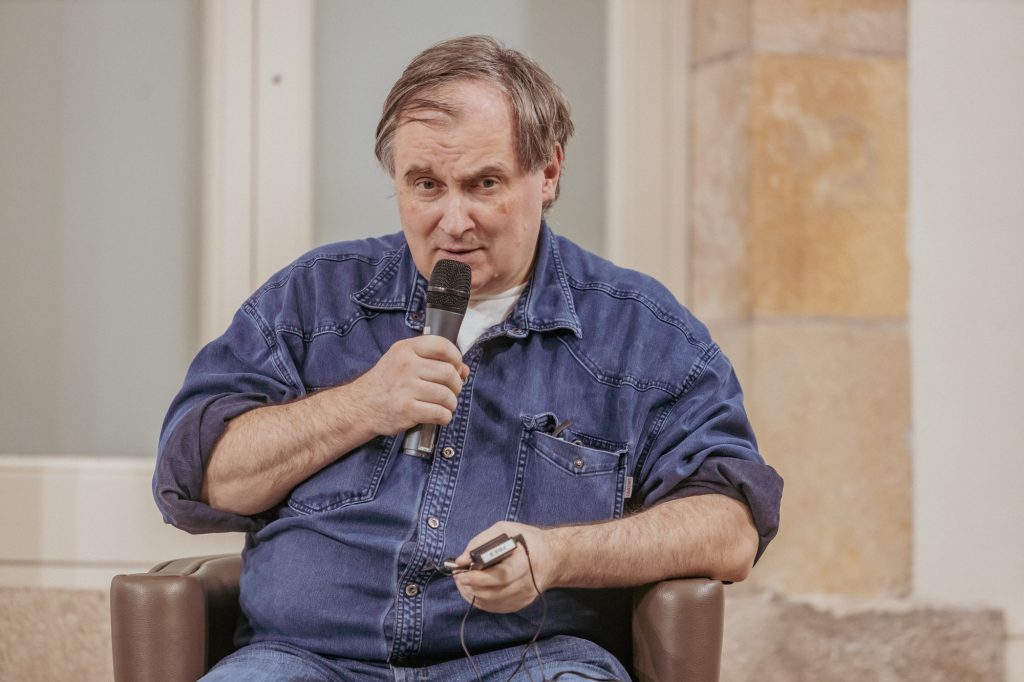
Developing a crosscutting narrative
The Parliament’s First Conference on Peace was closed by the director of ICIP, Kristian Herbolzheimer, as vice president of the Catalan Council for the Promotion of Peace, and the deputy and parliamentary board member, Carles Riera. In the context of the war in Ukraine, Herbolzheimer recalled that wars are avoidable and that the pacifist message is not utopic. He also called for the creation of “a crosscutting narrative” in response to the war “that allows us to make Putin understand that his aggression is unacceptable, that Ukraine is and will continue to be an independent while, at the same time, questioning a weapons logic that divides the world.”
The deputy of Parliament Carles Riera thanked the entities organising the event and urged them to start working on next year’s edition.
